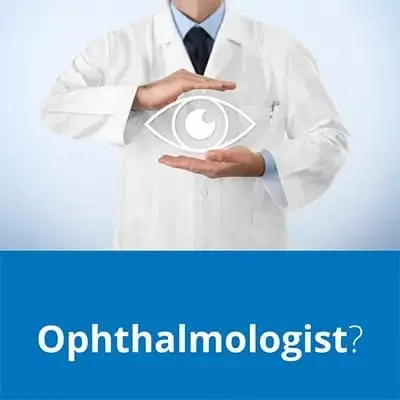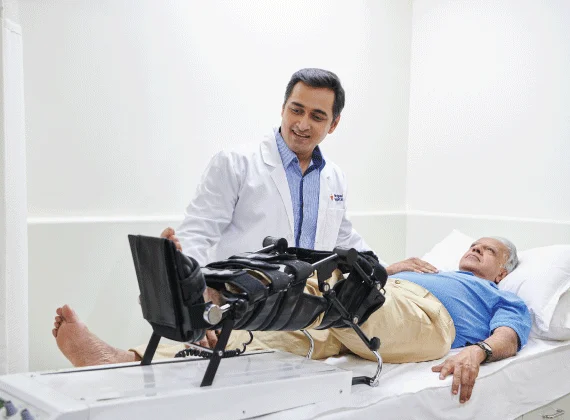Ophthalmologist
What is Ophthalmologist?
An expert in eye care is called an ophthalmologist. Ophthalmologists are physicians of medicine (MD) or doctors of osteopathy (DO) with specialized training and expertise in diagnosing and treating eye and vision disorders, in contrast to optometrists and opticians.
Ophthalmologists are competent to offer complete eye care, which includes both surgical and medicinal treatment. An expert in eye care is called an ophthalmologist.
Ophthalmologists are physicians of medicine (MD) or doctors of osteopathy (DO) with specialized training and expertise in diagnosing and treating eye and vision diseases, in contrast to optometrists and opticians.
Complete eye care, which includes vision services, eye exams, medical and surgical eye care, as well as the diagnosis and treatment of diseases and visual difficulties resulting from other ailments, such as diabetes, can be provided by an ophthalmologist.
Physicians who specialize in the diagnosis and treatment of issues related to the eyes and vision are known as ophthalmologists.
So what distinguishes an optometrist from an ophthalmologist? How about optometrists? The titles and work descriptions of these three categories of eye care professionals are quite similar. At first look, it could seem unclear. The distinction is as follows:
Opticians: can advise you on lens types and coatings as well as assist you in selecting frames for your glasses. They are unable to diagnose or treat eye conditions, prescribe prescriptions, or do eye examinations.
Optometrists: In addition to doing eye exams and vision tests, may also diagnose and treat a wide range of eye conditions. They can prescribe some drugs linked to the eyes, but they are neither surgeons nor medical professionals.
Ophthalmologists: In addition, prescribe glasses or contact lenses and conduct eye exams and vision tests. They can identify and handle any kind of eye issue because they are medical professionals. They are qualified to carry out eye surgery and offer aftercare.
What education is required to become an ophthalmologist?
A four-year pre-medical undergraduate degree, four years of medical school, a one-year internship, and three or more years of specialized medical and surgical training in the field of eye care are prerequisites for becoming an ophthalmologist.
A state regulatory authority has granted an ophthalmologist a license to practice as a competent specialist with the ability to diagnose, treat, and oversee diseases pertaining to the eye and visual system.
When would I need an ophthalmologist?
All of your eye care requirements can be met by an ophthalmologist, but if you have a serious condition requiring surgery or specialist treatment, you should think about seeing an ophthalmologist.
What eye problems require surgery?
Ophthalmologists operate on patients with the following eye conditions:
Cataracts. Your eyes are clear normally. The clouding of your eyes that results in cataracts causes symptoms including impaired vision.
Glaucoma. The second most common cause of blindness worldwide is this ailment. Fluid accumulation in the eye causes optic nerve damage in those who have glaucoma.
Separation of the Retina. Your retina, the layer of tissue in the back of your eye, can tear away from supporting tissues, resulting in a dangerous condition for your eyes.
What eye problems require specialized treatment?
The following are some instances of ailments for which you could consult an ophthalmologist:
Macular Degeneration Brought on By Age. This is a common age-related ocular condition that makes it difficult for people to see what is right in front of them.
Amphetopia, or Sleepy Eyes. When one eye weakens more than the other throughout infancy or youth, it is known as amblyopia or lazy eye. Glasses or an eye patch are examples of treatments.
The Astigmatic. Vision blurring is a result of this eye disease. Laser surgery is occasionally used as a treatment.
Corneal Disease. These ailments have the potential to harm your cornea, which might impair your eyesight.
Retinal Damage Caused by Diabetes. A disease known as diabetes-related retinopathy causes the blood vessels in your retina to deteriorate.
Distance Vision (hyperopia). Farsighted people have difficulty focusing on items that are near to them, yet they can see objects that are far away. LASIK surgery is used to treat farsightedness.
Vitreous Detachment in The Posterior (PVD). This is a typical age-related condition of the eyes that results in light flashes or “floaters.”
When should I have my eyes examined?
Another thing you can do to safeguard the health of you and your family is to get regular eye screenings. Since your eye health may change over time, scheduling regular eye checkups is a wise move.
- Every kid should have a vision screening in the office of their doctor or family practitioner at the time of learning their alphabet, and then every other year or two after that. If there is a suspicion of any eye issues, screening should start sooner.
- Every five to ten years, adults between the ages of 20 and 39 should get thorough eye exams.
- Adults between the ages of 40 and 54 should have an eye examination every two to four years.
- Adults between the ages of 55 and 64 should have an eye examination every three to five years.
What should I expect from my appointment with my ophthalmologist?
The majority of standard eye exams begin with inquiries regarding your eyes:
- Do you have any issues with your eyes or vision?
- What are they, if any?
- How long have these issues been bothering you?
- Are there any particular circumstances that worsen or improve your visual problems?
Your ophthalmologist will then inquire about your past experiences with contacts or glasses. Inquiries on your general well-being and your family’s medical history, including any specific eye conditions, may also be made.
What tests are done to check my eyes?
Your ophthalmologist will do a number of tests to find out more about the condition of your eyes:
- Test of visual acuity. A Snellen chart, which has lines of random letters that get smaller as you go down the chart, will be given to you to read from.
- Test for color blindness. You will be required to examine many charts that have colored dots in the shape of numbers on them.
- tests of peripheral vision. It’s possible that you will be asked to peer into a machine and point out any bright spots.
- Stereopsis test. This exam assesses your level of 3-D vision.
- Test your eye muscles. You may be asked to shift your eyes in different directions while staring at a pencil or penlight.
- test of pupil constriction. Your ophthalmologist may use a penlight to examine your pupils to make sure they contract or close in response to light.
- Check the fundus. Your ophthalmologist may prescribe eye drops to enlarge your pupils so they may examine the structures at the back of your eye. Known as the fundus, this region encompasses the retina, adjacent blood vessels, and the optic nerve.
- Check the front of the eyes. To examine your eyelids, cornea, conjunctiva, sclera, and iris, an ophthalmologist may ask you to gaze into a slit lamp, which is a magnification equipment.
- Glaucoma Examination. To check for glaucoma, your ophthalmologist will have you hold your eye up to a lens that will push air out of it.
FAQ
Who is called an ophthalmologist?
An ophthalmologist, or Eye M.D., is a physician with a medical or osteopathic background who focuses on treating visual problems. Ophthalmologists have different training levels and are capable of diagnosing and treating different conditions than optometrists and opticians.
Is ophthalmology an MD or MS?
MS Ophthalmology is a branch of medicine and surgery that focuses on the identification and management of disorders pertaining to the eyes. In India, it is also referred to as an MD in ophthalmology. The goal of this three-year postgraduate program is to impart solid scientific skills together with the principles of ophthalmology.
What are OD and MD in ophthalmology?
An M.D. An ophthalmologist is a person who specializes in eye treatment. An ophthalmologist must finish four years of undergraduate studies, four years of medical school, and at least four years of residency (training at a hospital). A doctor of optometry degree is held by optometrists.
How old is ophthalmology?
The Ebers Papyrus (Fig. 1), a 110-page scroll that dates back to 1550 BC, is the oldest known written record of medical treatments for eye illness, although it was not until Ancient Egypt that it was found.
What is the latest in ophthalmology?
Results that were previously unknown about inherited genetic variations that lead to primary open-angle glaucoma, the most prevalent kind of the condition, are being revealed by researchers. Together, Siloam Eyesight and Orbis are building the necessary infrastructure to preserve preterm newborns’ eyesight.
Which subject is best for ophthalmology?
Since there isn’t a bachelor’s degree in ophthalmology, undergraduate coursework in biology or chemistry may help you get ready for medical school, even if a specific major isn’t necessary to become an ophthalmologist. Medical school admissions are tough and frequently need strong performance in science, math, and English courses.
Is an ophthalmologist an MBBS doctor?
Ophthalmologists are doctors (MD/DO in the US, MBBS in the UK and other countries, or DO/DOMS/DNB) who normally finish general medical school as an undergraduate degree before beginning an ophthalmology residency.




9 Comments